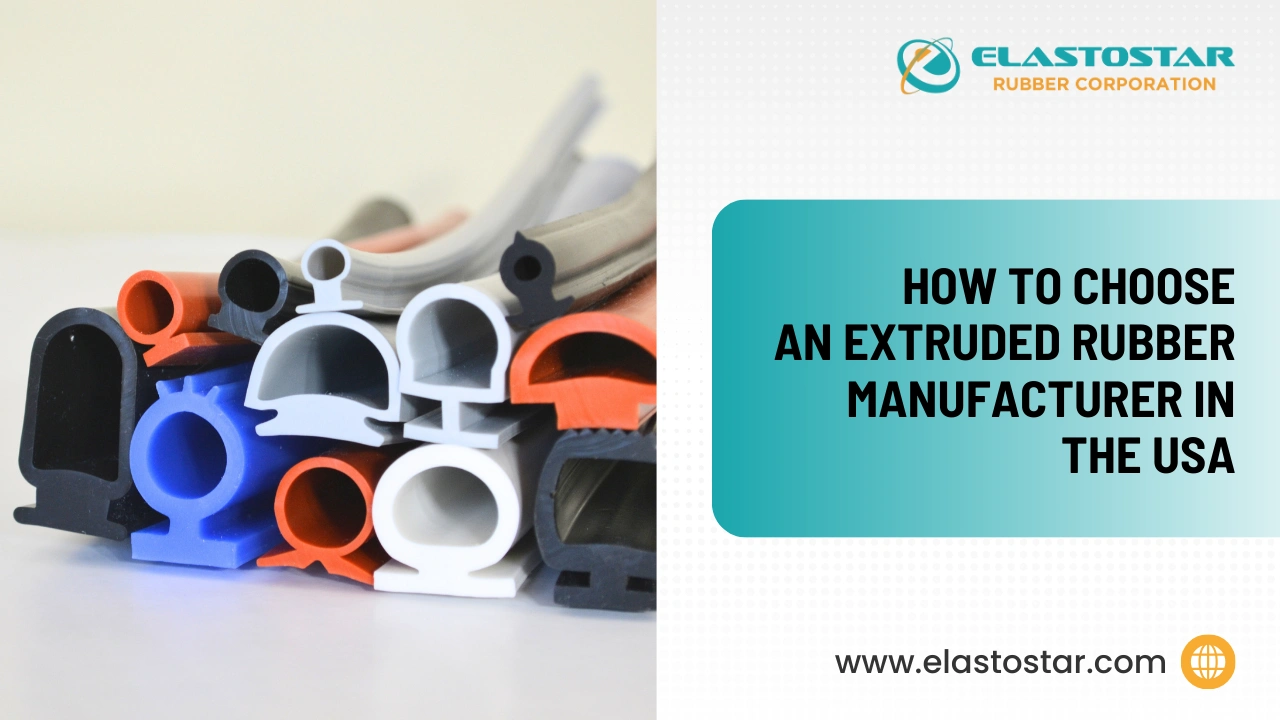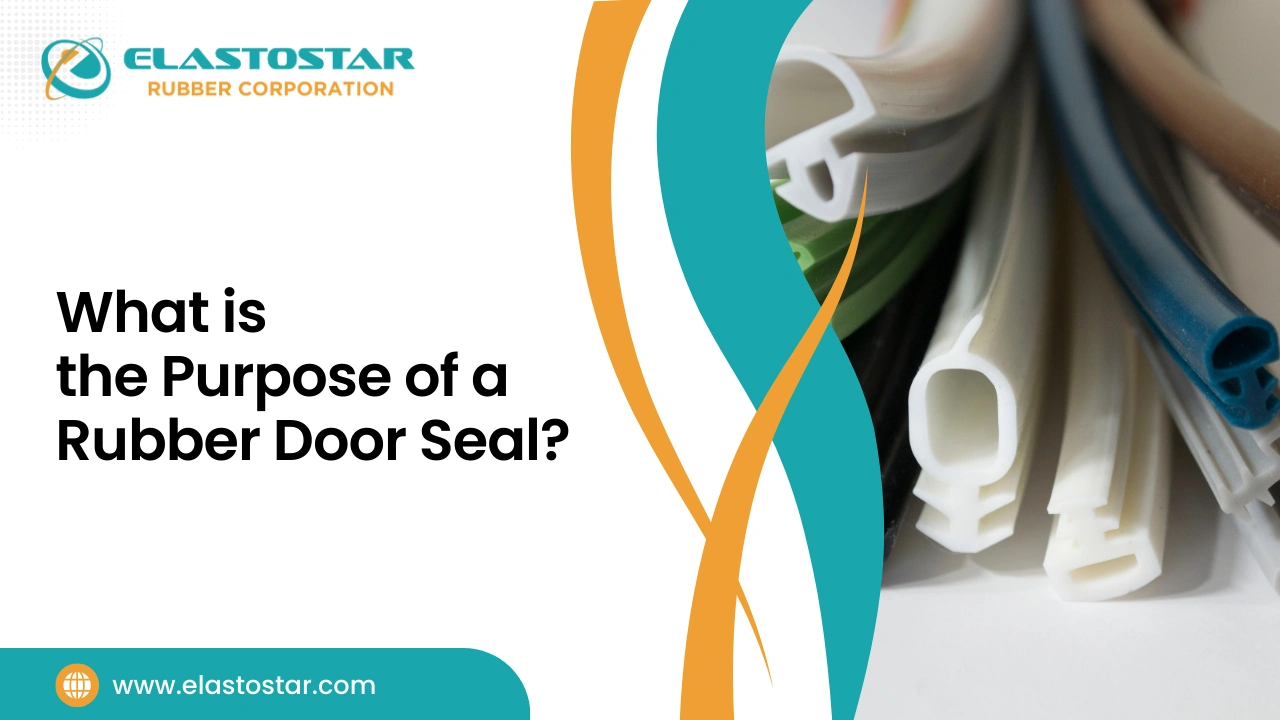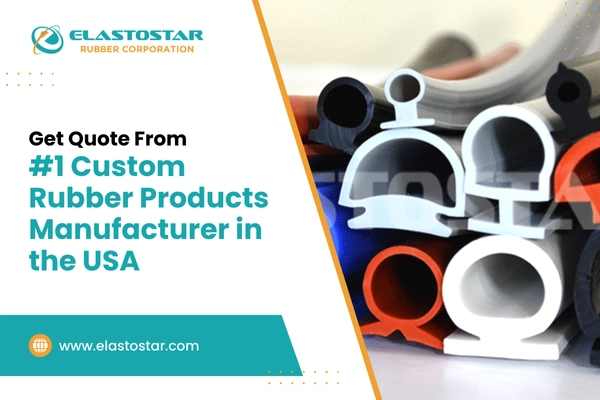Silicone rubber is an important material in the electrical and lighting industry, known for its durability, heat resistance, and excellent insulation properties. It is widely used in applications such as wiring insulation, LED components, and seals, where extruded rubber plays a crucial role in ensuring safety and performance.
This blog explores the top uses and benefits of silicone rubber in these industries.
Table of Contents
What is Silicone Rubber?
Silicone rubber is a synthetic material made from silicon, oxygen, carbon, and hydrogen. It is known for its durability, flexibility, and resistance to extreme temperatures, chemicals, and environmental conditions. These properties make it a popular choice for various applications, including electrical insulation, seals, gaskets, and components in the electronics and lighting industries.
Read More- Sponge Silicone Rubber Products: Benefits & Applications
How does Silicone Rubber Enhance Electronic Applications?

Silicone rubber is processed through advanced techniques to create custom extrusions that meet the specific needs of various electronic applications. Using processes like extruding silicone, manufacturers can design components with precise shapes and dimensions.
This flexibility, combined with silicone’s resistance to harsh environments and its excellent dielectric properties, makes it an ideal material for protecting electronic components in demanding conditions.
Read More –Top 7 Uses of Silicone in Electronics Manufacturing
Properties That Make Silicone Rubber Ideal for Electrical & Lighting Applications

Silicone rubber has unique properties that make it a preferred material in the electrical and lighting industry. From its ability to handle extreme conditions to its superior insulation capabilities, silicone rubber supports a wide range of applications.
- Thermal Resistance
Silicone rubber performs reliably in high-heat environments like LED lighting systems, holding extreme temperatures without losing its structural integrity. - Electrical Insulation
Its excellent dielectric properties make it ideal for insulating wiring, enclosures, and electronic circuits, ensuring safety and performance. - Chemical Resistance
Silicone rubber resists oils, solvents, and corrosive substances, protecting sensitive components from damage in demanding environments. - Durability and Flexibility
It maintains its functionality under mechanical stress, making it suitable across various industries.
These properties highlight silicone rubber’s importance in creating reliable and long-lasting solutions for electrical and lighting applications.
Top Uses of Silicone Rubber in the Electrical & Lighting Industry
Conductive Rubber is widely used in the electrical and lighting industry, providing durable and reliable solutions for a wide range of applications.
1. Wiring and Cable Insulation
Extruded rubber is commonly used to insulate electrical wires and cables, preventing short circuits and ensuring safe power transmission. It performs exceptionally well in high-temperature environments, making it a reliable choice for demanding applications.
2. Seals and Gaskets for Electronic Enclosures
Silicone rubber seals and gaskets protect electronic enclosures from moisture, dust, and contaminants. These components, including custom extruded rubber profiles, are designed to fit specific requirements, ensuring reliable and consistent performance.
3. LED Lighting Components
Silicone is widely used in components like lenses, diff users, and moldings for LED lighting systems. These parts improve light dispersion and protect fixtures from environmental conditions, ensuring durability and efficiency in lighting applications.
4. Vibration Dampening in Electronics
Silicone rubber helps reduce mechanical vibrations in electronic devices, protecting delicate components and increasing the life span of the equipment. This is particularly important for sensitive electronics used in industrial and consumer applications.
5. Thermal Management Solutions
Silicone-based thermal pads and adhesives are used in electronic systems to dissipate heat efficiently. These solutions are critical for maintaining consistent operation and preventing overheating in high-performance equipment.
6. Sealants for Circuit Protection
Silicone sealants are extensively used to waterproof and insulate circuit boards and connectors, safeguarding them from moisture and other environmental factors. These sealants enhance the durability and reliability of electronic systems in challenging conditions.
This diverse range of applications highlights the significance of silicone rubber in modern electrical and lighting technologies.
What are the Advantages of Silicone Rubber in Electrical & Lighting Applications?

Silicone rubber offers several key benefits that make it a preferred material for electrical and lighting applications.
From its ability to handle extreme conditions to its adaptability for specialized uses, silicone rubber supports a wide range of needs, including custom extruded rubber components.
- High Heat Resistance
Silicone rubber performs reliably in environments with extreme temperatures, making it an excellent choice for electrical systems and lighting applications, including LEDs. - Superior Electrical Insulation
Its dielectric properties prevent electrical failures, enhancing safety in wiring and enclosures. - Weatherproofing
Silicone rubber components resist UV rays, rain, and humidity, making them durable and suitable for outdoor applications. - Adaptability
Using methods like extruding silicone, manufacturers can create components personalized to specific requirements, providing solutions for diverse industrial needs.
These advantages make silicone rubber an invaluable material for building reliable and efficient electrical and lighting systems.
Why Choose Us at Elastostar Rubber Corporation for Custom Silicone Solutions?
At Elastostar Rubber Corporation, we specialize in crafting custom extruded silicone solutions designed specifically for the electrical and lighting industries. With our advanced extrusion technology and in-depth expertise, we deliver high-quality components that are customized to meet your unique requirements.
Our commitment to excellence ensures reliable performance and durability in every application we serve. Let us be your trusted partner for all your silicone rubber needs.
Recommendations Reads
- Top 7 Benefits of Using Metal Detectable Seals & Gaskets
- 6 Industries Where Silicone Rubber Tubing is Popularly Used
- Top 7 Applications of Silicone Rubber in the Automotive Industry

Conclusion
Silicone rubber is widely used in the electrical and lighting industry for its versatility, durability, and safety. It is commonly applied in wiring insulation, LED components, and seals. Through processes like custom extruded rubber profiles, we create components that meet the demands of modern electronic and lighting systems. With its reliable performance and adaptability, silicone rubber remains a trusted solution for industrial and commercial applications.
FAQs
1. What are the common uses of silicone rubber?
Silicone rubber is commonly used for wiring insulation, seals, gaskets, LED components, and vibration dampening in electronics and lighting systems. Its flexibility and durability make it suitable for various industrial applications.
2. What is rubber used for in electrical?
Rubber is used in electrical systems for insulating wires, cables, and enclosures to prevent short circuits and ensure safety. It also acts as a sealant to protect components from moisture and contaminants.
3. Is silicone rubber a good electrical insulator?
Yes, silicone rubber is an excellent electrical insulator due to its high dielectric strength, making it ideal for protecting circuits and ensuring the safe operation of electrical systems.
4. What is high-temperature silicone used for?
High-temperature silicone is used in applications requiring resistance to extreme heat, such as wiring insulation, LED components, and thermal management in electronic devices. For reliable solutions, contact us for custom silicone products.
5. Why do electricians use rubber?
Electricians use rubber because of its insulating properties, which protect against electric shocks and prevent short circuits in wiring and electrical systems.
6. Why is rubber used to cover electrical wiring?
Rubber is used to cover electrical wiring because it prevents current leakage, protects against environmental damage, and enhances the safety and longevity of electrical systems.




